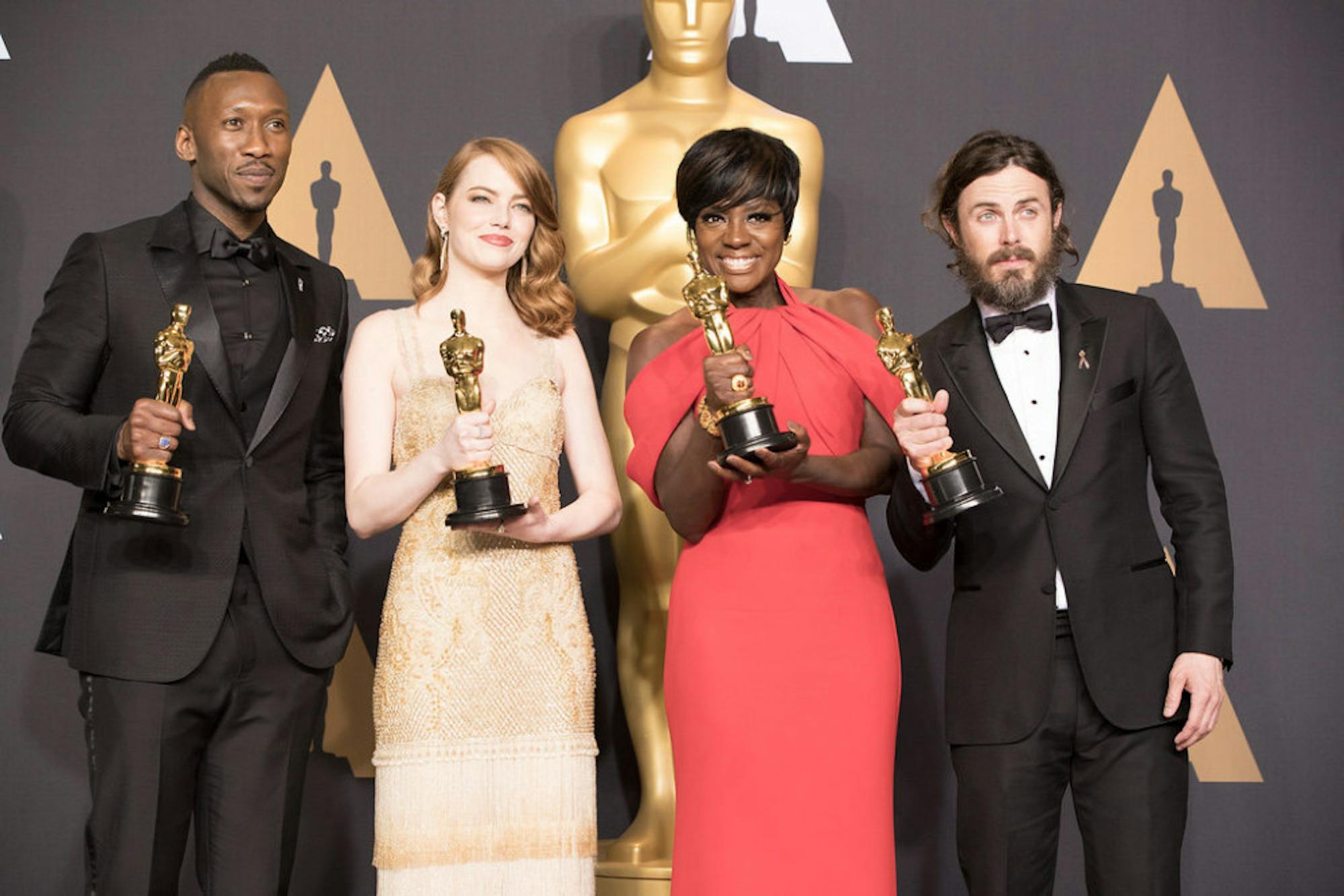I recently had the pleasure of watching “To Die For” (1995), which stars Nicole Kidman as an ambitious, hyperfeminized woman who stops at nothing for success. It clearly served as an inspiration for “I, Tonya” (2017) and “Promising Young Woman” (2020) — all of which cleverly subverted the male gaze by satirizing the "girlboss" narrative. While the latter film is up for five well-deserved Academy Awards this year and “I, Tonya” received a few acting nominations, “To Die For” won only best actress for a musical or comedy at the Golden Globes. Though the major film and TV awards ceremonies — the Oscars, Emmys and Golden Globes — have significantly improved at recognizing genuine male gaze-free stories about women, there is still a staggering amount of unrecognized work about the female experience.
The “male gaze” is a term that was first used in the context of cinema by feminist thinker Laura Mulvey to describe the depiction of women in media as seen through a heterosexual male lens. Film has often relegated female characters to mere side pieces or love interests for leading men — the women of the James Bond franchise are an obvious example of the male gaze at work. However, even the most independent, ambitious and authoritative female characters can still be portrayed by the male gaze. These usually fall into the girlboss category.
A girlboss is a supposedly feminist character — one with equal or even greater power than her male counterparts — that still is characterized by the male gaze. Female superheroes, for instance, are often defined by this gaze — Scarlett Johansson as Black Widow in the Marvel Cinematic Universe comes to mind. Black Widow’s impressive combat skills, witty one-liners and independence convince viewers that she is a powerful female character. In reality, the character was little more than an over-sexualized, girlboss sidekick. Such characters are often costumed in revealing clothing,framed in ways that highlight their “ideal” bodies, and serve as little more than sidekicks to a broader plot. As much fun as female characters can be, it’s important to recognize when they are filling the girlboss roleand existing under the male gaze.
The members of various entertainment awards’ voting bodies seem to be unaware of this phenomenon — they are quick to reward girlboss media and ignore more complex female stories. The complete omission of Michaela Coel’s “I May Destroy You" (2020), a miniseries that follows a young woman who is processing her rape, from this year’s Golden Globes nominations sticks out like a sore thumb. “The Queen’s Gambit" (2020), another story about a woman coping with trauma, took home the award for Best Television Motion Picture. Unlike the female lead in “I May Destroy You,” Beth Harmon of “The Queen’s Gambit” exists without complexity and yields to the male gaze. In doing so, “The Queen’s Gambit” made a girlboss out of its main character, whereas “I May Destroy You” explored the nuanced experience of female trauma, free from the male gaze.
Another woman's grief story, “Fleabag” (2016–19), commanded the comedy category of the 2019 Emmys for its second season. Season 1, though, was completely dismissed by the major awards ceremonies. In the show, writer and star Phoebe Waller-Bridge explores the titular character’s grief through an innovative use of breaking the fourth wall. Its award-winning second season importantly introduced a male character — a priest — opposite her to serve as a savior of sorts, rescuing Fleabag from her trauma and transforming the strong female lead into a damsel in distress. That said, its second season was outstanding and absolutely deserving of its accolades. The priest (Andrew Scott) added a new layer to the show, even if he could be boiled down to a mere savior. It is more than disappointing, however, that "Fleabag’s" complex and edgy first season was ignored by major awards ceremonies.
Comedy is an important way for female writers to make their points. The aforementioned works use humor to criticize the male gaze and, by extension, the concept of the girlboss. Some also use it as a coping mechanism — the middle school cringe comedy series “Pen15” (2019–) highlights the awkward beauty of formative female friendships and uses humor to emphasize its embarrassing realities and relatability of its characters. Its comedy and general dialogue both showcase how meaningful these relationships can be while exploring characters’ experiences with race and femininity. Another genuine tale of the female experience, “Pen15” was nominated for a writing Emmy in 2019, but has received no other major awards' recognition.
Instead of awarding these more complex portrayals of the female experience, voters choose to nominate films that succumb to the male gaze (“Once Upon a Time in Hollywood” (2019), for example) or films that oversimplify the female perspective. Indeed, even stories about women written by women don’t necessarily offer complex takes on the female experience. For example, this year’s awards darling is "Nomadland" (2020), which focuses on the journey of one woman across the western United States as she navigates financial hardship. Though its main character is a woman, "Nomadland" almost entirely removes the concept of gender from its defeminized narrative. The movie gets not at the experiences of women but at those of a universal humanity. Major awards ceremonies have no problem recognizing works with female leads, just not works about the unique feminine experience.
Awards ceremonies refuse to recognize these media because to do so would question their authority. For too long, excellence in the film industry has been defined by a male narrative — the industry has rewarded works that explore the experiences of men. To recognize the value in genuine stories about women would challenge what excellence really means to the industry.






